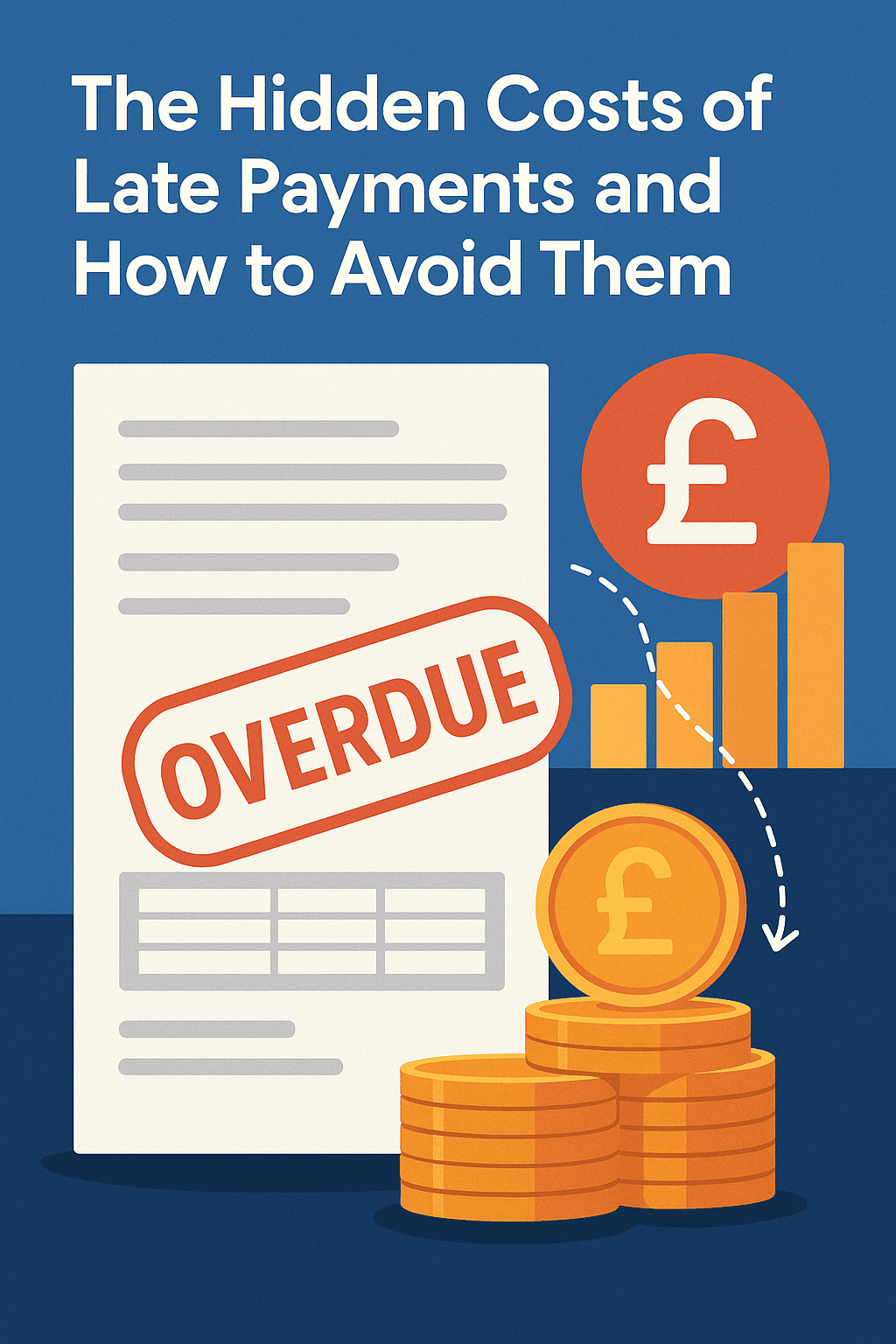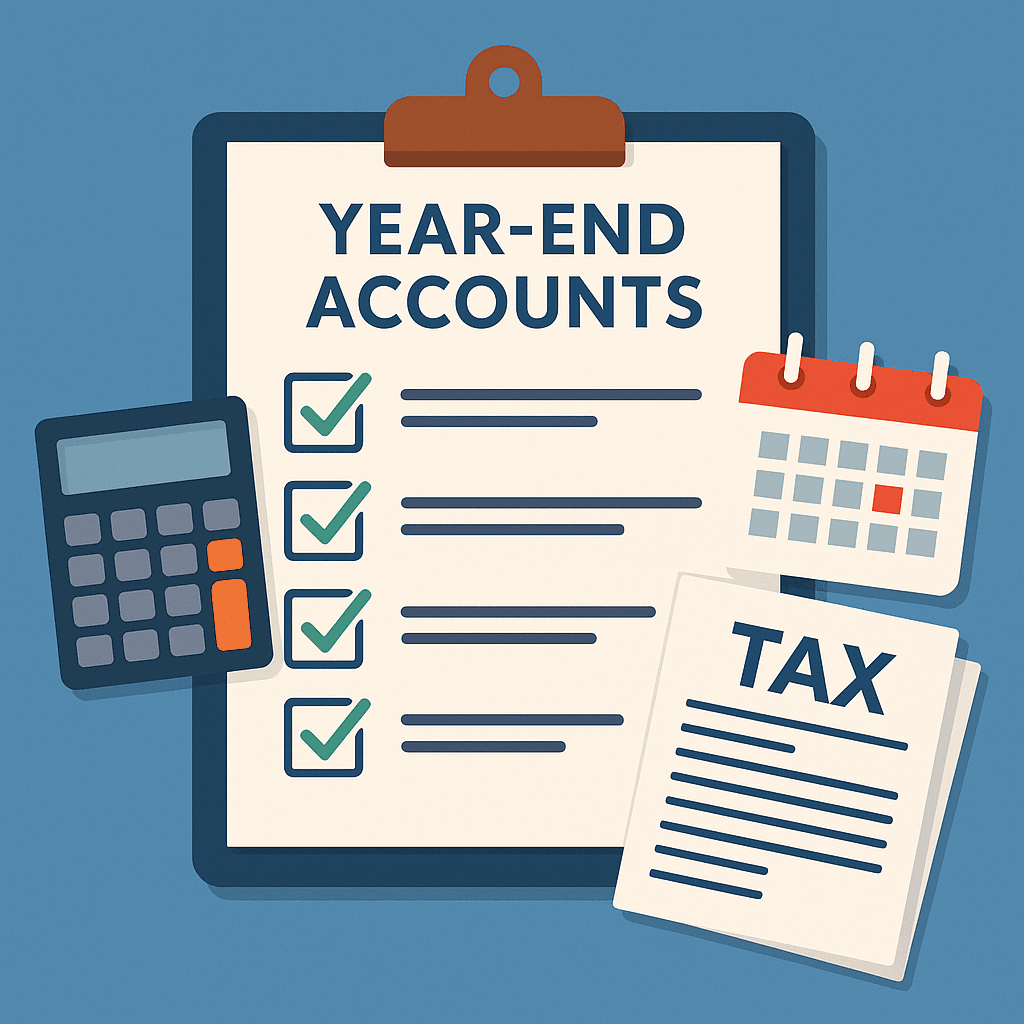Late payments are a common challenge for small and medium-sized businesses, but many owners underestimate the real impact they can have. While a single overdue invoice may not seem like a big issue, repeated delays in customer payments can create serious financial strain, disrupt cash flow, and even damage business relationships. Understanding the hidden costs of late payments—and learning how to avoid them—can make the difference between a business that struggles and one that thrives.
The True Impact of Late Payments
1. Cash Flow Disruptions
Cash flow is the lifeblood of any business. When payments are delayed, it becomes harder to cover everyday expenses such as payroll, rent, utilities, and supplier invoices. This often forces business owners to rely on overdrafts or short-term loans, adding unnecessary interest and fees.
2. Damaged Supplier Relationships
If your customers pay you late, you may find yourself struggling to pay your own suppliers on time. This can weaken relationships with vendors, harm your reputation, and may even result in less favourable terms in the future.
3. Increased Administrative Costs
Chasing overdue payments can be time-consuming and stressful. Staff hours spent on follow-up calls, reminder emails, and managing disputes could be better used on growth-focused activities.
4. Missed Growth Opportunities
With cash tied up in unpaid invoices, businesses often have to delay investments in new equipment, marketing campaigns, or expansion plans. This stifles long-term growth and puts you at a disadvantage compared to competitors.
5. Risk of Bad Debt
The longer an invoice remains unpaid, the greater the chance it will never be paid at all. Bad debts not only cut into profits but also skew financial reporting and make it difficult to forecast accurately.
How to Reduce the Risk of Late Payments
1. Set Clear Payment Terms
Always make your payment terms explicit on invoices and contracts. Whether it’s 14, 30, or 60 days, ensure customers know when payment is due and what penalties may apply if deadlines are missed.
2. Invoice Promptly and Accurately
Send invoices as soon as the work is completed or products are delivered. Double-check for errors, as incorrect invoices often cause delays.
3. Offer Multiple Payment Options
The easier you make it for customers to pay, the more likely they are to do so on time. Consider offering online payments, direct debit, or card facilities in addition to bank transfers.
4. Use Automated Reminders
Accounting software can send polite reminders before and after due dates. Automating this process reduces admin time and ensures customers don’t “forget” to pay.
5. Build Strong Client Relationships
A positive relationship often encourages customers to respect your payment terms. Regular communication and trust can reduce the likelihood of disputes and late settlements.
6. Introduce Incentives and Penalties
Discounts for early payments and late payment fees can both encourage quicker settlements. Just be sure to communicate these terms clearly upfront.
7. Consider Credit Checks for New Clients
Before extending credit to a new customer, assess their financial stability. This small step can protect you from clients with a history of poor payment practices.
When to Take Action
If late payments become a recurring issue, it may be worth involving a professional debt collection service or seeking legal advice. While this can feel like a last resort, it’s sometimes necessary to protect your business and maintain financial health.
Final Thoughts
Late payments may seem like a normal part of doing business, but their hidden costs can add up quickly, impacting cash flow, operations, and growth potential. By putting proactive measures in place—such as clear terms, efficient invoicing, and strong client communication—you can significantly reduce the risk. Staying on top of late payments isn’t just about protecting revenue; it’s about giving your business the stability and confidence it needs to grow.




